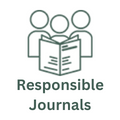Karol Wojtyla: the beginning of a calling to search for the truth of man
DOI:
https://doi.org/10.21501/23461780.913Keywords:
Phenomenon, Totalitarianism, Geopolitics, Personalism, Hitler.Abstract
The constant return of Karol Wojtyla to the study of man and the defense of human dignity are not made by chance or mere interest of the thinker; but are the result of the experience of the phenomenon of totalitarianism during the course of World War II. Karol Wojtyla suffered all the contempt of Nazi barbarism and the subsequent arrival of communism to his country. These “evil ideologies” as he called them, evidence the true radical nature of evil, forgetting the other and a systematic rejection for human life. This article is a description of the exercise of power and domination executed by Adolf Hitler, specifically in Poland, during the transition of the war in that country, birthplace of Pope Wojtyla. The object of study is the understanding, in terms of causality, of the thought of Karol Wojtyla: personalism and Christian humanism; The words “totalitarianism”, “geopolitics”, “personalism” and the figure of Hitler are essential in that order of ideas. Thinkers do not grow alone; their temperament is the result of the context in which they lived. In this analysis, for a better understanding, there are references to authors as Hannah Arendt and Joan Carles Mélich, who have expanded the horizon of understanding about this phenomenon.
Downloads
References
Arendt, H. (1996). Entre el pasado y el futuro. Barcelona: Península.
Arendt, H. (1997). ¿Qué es política? Barcelona: Paidós.
Arendt, H. (2004). Los orígenes del Totalitarismo. México: Taurus.
Arendt, H. (2005). La Condición Humana. Barcelona: Paidós Ibérica.
Bilbeny, N. (1992). Aproximación a la Ética. Barcelona: Ariel.
Kupareo, R. (1966). Creaciones Humanas. Santiago de Chile: Universidad Católica de Chile.
Lipovetsky, G. (1994). El crepúsculo del deber, la ética indolora de los nuevos tiempos democráticos. Barcelona: Anagrama.
Mélich, J. C. (1998). Totalitarismo y fecundidad. La Filosofía frente a Auschwitz. Barcelona: Anthropos.
Weigel, G. (2000). Biografía de Juan Pablo II, testigo de esperanza. Barcelona: Plaza y Janés.
Wiesel, E. (1958). La noche. París: Aleph.
Wojtyla, K. J. (1978). Amor y Responsabilidad. Madrid: Razón y fe.
Wojtyla, K. J. (1979). Carta Encíclica Redemtor Hominis. Madrid: P.P.C.
Wojtyla, K. J. (1980). Max Scheler y la ética cristiana. Madrid: BAC.
Wojtyla, K. J.(1981). Exhortación apostólica postsinodal Familiaris Consortio sobre la misión de la familia cristiana en el mundo actual. 3.ed. Madrid:Paulinas.
Wojtyla, K. J. (1982). Persona y acción. Madrid: Biblioteca de Autores Cristianos, de la Editorial Católica S. A.
Wojtyla, K. J. (1995). Carta Encíclica Evangelium Vitae sobre el valor y el carácter inviolable de la vida humana. Ciudad del Vaticano: Librería Editrice Vaticana.
Wojtyla, K. J. (1998). Mi visión del hombre. Hacia una nueva ética. Madrid: Palabra.
Wojtyla, K. J. (2001). Carta encíclica Veritatis Splendor, sobre algunas cuestiones fundamentales de la enseñanza moral de la Iglesia. Santiago de los Caballeros: Pontifica Universidad Católica Madre y Maestra (Pucmm).
Wojtyla, K. J. (2003). El don del amor. Escritos sobre la familia. Madrid: Palabra.
Wojtyla, K. J. (2005a). El hombre y su destino. Ensayos de antropología. Madrid: Palabra.
Wojtyla, K. J. (2005b). Memoria e identidad. Santiago de Chile: Planeta.
Wojtyla, K. J. (2005c). Karol Wojtyla. Poesías. Madrid: BAC.
Woznicki, Andrew N. (1988). Un humanismo cristiano: El personalismo existencialista de Karol Wojtyla. Lima: Asociación Vida y Espiritualidad.
Downloads
Published
How to Cite
Issue
Section
License
La revista y los textos individuales que en esta se divulgan están protegidos por las leyes de copyright y por los términos y condiciones de la Licencia Creative Commons Atribución-No Comercial-Sin Derivar 4.0 Internacional.
















